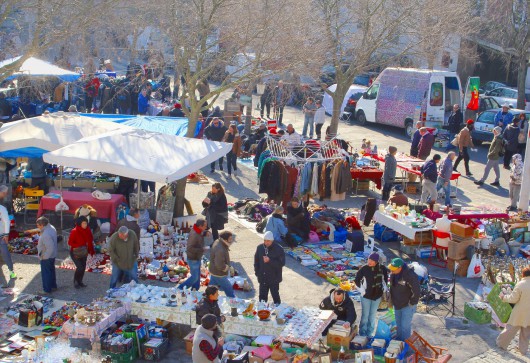Towards a sustainable economy: How to make the circular economy a ‘business model’ for the EU
04-12-2019

By 2050, the global municipal solid waste generation is estimated to rise to 3.4 billion tonnes per year, compared to the current 2.1 billion tonnes, according to data from the World Bank. This increasing amount of garbage and diminishing resources available at a global scale pose a challenge for European politicians, society and industry alike. The reduction of single use plastic, such as bags or straws, is in particular a major public concern.
The circular economy is a key element in the transition to a more sustainable EU economy. Its goal is to promote eco-friendlier and more conscious consumption and production, and encourage the repair, reuse and recycling of products. As the new Commission President Ursula von der Leyen mentioned in her Political Guidelines in July, “circular economy is key for developing Europe’s future economic model.”
However, to make this vision a reality, companies need to be convinced of Europe’s path towards eco-friendly production. By using waste as a resource, the circular economy can even contribute to the EU’s competitiveness – when rules are set with a sense of proportion and do not overburden sectors like SMEs. For industry, a key for success is not to limit actions banning single-use plastic, but to promote market-driven solutions. Plastic needs a value making it attractive to collect and recycle, so that a market for secondary materials can emerge. Closing the loop for plastics requires the whole value chain to be involved.
EURACTIV invites you to this high-level Stakeholder Workshop to discuss the EU’s circular economy policy, its current challenges and its future steps. Questions will include:
-How can the circular economy happen faster to the benefit of all?
-Are all Member States united behind the EU’s circular economy action plans? How do national circular economy strategies differ?
-What are the successes and examples of best practice?
-What is the role of industry in the implementation of the circular economy?
-Closing the loop on plastics - What further actions are needed by policymakers and how can industry contribute with technological solutions?
Supported by:
Location
Euractiv Network Office
Boulevard Charlemagne 1, 1041 Brussels
Google Maps >>
Panellists
Fulvia Raffaelli, Head of Unit, Clean Technologies and Products, DG GROW, European Commission
Cillian Lohan, CEO, Green Economy Foundation; EESC Member, European Circular Economy Stakeholder Platform
Annika Hedberg, Head of Sustainable Prosperity for Europe programme and Senior Policy Analyst, European Policy Centre (EPC)
Ulrich Reifenhäuser, Managing Director, Reifenhäuser GmbH & Co. KG Maschinenfabrik
Moderator
Ross Melzer, EU Affairs Director, EURACTIV
Schedule
12:00 – 12:30 Registration and networking lunch
12:30 – 13:00 Opening statements
13:00 – 14:00 Discussion and Q&A
Contact
Teresa Dominguez
teresa.dominguez@euractiv.com
+32 (0) 2 788 36 93





